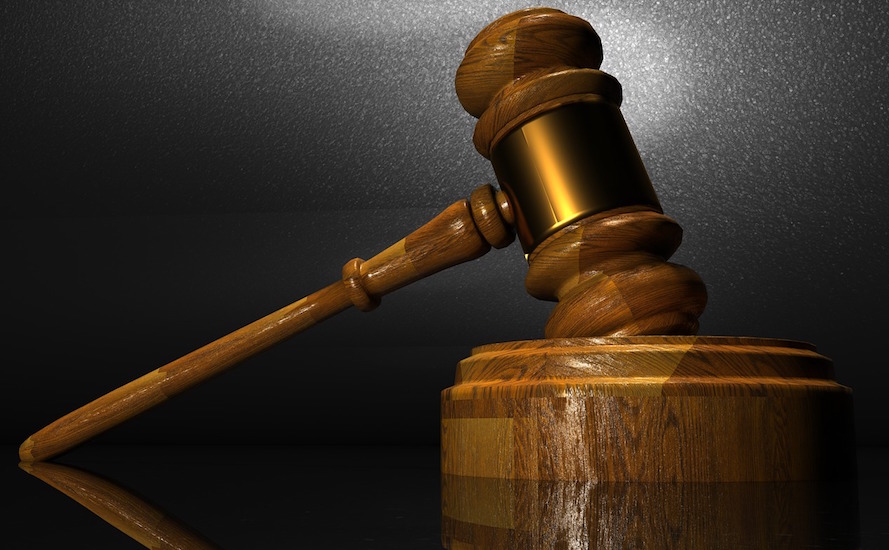A surety is suing a Louisiana school board for $890,270 over an arts-center project on which the prime contractor defaulted.
Surety bonds are three-way agreements, and litigation between sureties and surety agreement obligees are not unheard of.
But in this case, Worcester, Mass.-based Hanover Insurance Co., which provided a $2.5-million bond to a prime contractor, is suing Jefferson Parish School Board in federal court in New Orleans for paying the project’s contractor $108,163 after the builder had effectively defaulted on the project.
Hanover also is seeking $744,841 for additional money spent making repairs to rain and weather damage that the insurer contends occurred while it was awaiting permission from the school board to send in a contractor to close the open roof on the then-half-finished project and make other repairs.
In a filing in the U.S. District Court for the Eastern District of Louisiana, Jefferson Parish School board contends Hanover is to blame for the delays.
In a counterclaim, the board is seeking $218,597 in damages from Hanover, arguing the insurer “did not complete the work within the time allowed under the plans, specifications and building contract herein.” The board’s claim also includes attorneys’ fees and money paid to construction and architectural consultants.
“Any alleged deterioration, further deterioration, damage or further damage to the premises was the fault of someone other than the defendant over whom the defendant had no control or authority,” attorneys for the school board argue.
The litigation involves the New Arts Center at the Grace King High School, in Harvey, La., awarded to Catco General Contractors LLC in late 2010. Attempts to reach Catco were unsuccessful, but news reports from the company's base in Hahnville, La., indicate that the company's owner, Christopher Adams Twiner, tragically passed away at age 40 in July 2011.
Instructions Not To Pay
Hanover contends the first major issue arose after it warned Jefferson Parish School Board on Oct. 10, 2011, not to pay Catco, citing insurance claims filed on the project.
The school board acknowledged the request in a letter dated Oct. 26, but then went ahead and paid the contractor $108,163, Hanover contends, arguing it reduced the remaining contract funds that were collateral for the insurer.
Catco stopped work on the project on Nov. 18, but it took the school board another two months to officially place the project in default, according to a complaint filed in federal court by Hanover.
Three weeks later, the school board wrote an email to Catco’s attorney, noting that the contractor was no longer working on the project and that, with work on the roof unfinished, water “was ponding on the interior slab.”
On Dec. 16, Catco responded that it would not be able to complete the work, but the school board did not place the project in default until a month later, on Jan. 17, 2012, Hanover’s lawsuit notes.
It then took the school board months to give permission to a contractor hired by Hanover to close the open roof of the unfinished project and make other repairs, the insurer contends.
Hanover asked the school board on Jan. 27 for permission to let J. Caldarera & Sons Co. go to work on the project and seal the arts center’s open roof.
CHanover’s attorney then raised the issue of rain and weather damage to the arts-center project, contacting the school board three times more between Feb. 4 and March 27 in the hope of getting permission for Caldarera to start work closing off the roof, the insurer claims in its court filings. On March 26, representatives of the insurance company gained access to the now dormant worksite, finding standing water and damage to the interior of the building.
Two days later, on March 28, the school board finally gave a green light to Hanover’s contractor to begin repair work.
Meanwhile, getting an official “takeover” agreement under which Hanover could oversee the completion of the project, proved to be even more arduous, the insurer argues.
Hanover forwarded a first draft of the takeover agreement to the school board on Jan. 28, but it wasn’t signed by the school board until June 14.
The insurer then hired Caldarera to finish work on the project, which was completed just over a year later, in September 2013.
As part of the $890,270 in damages being sought by Hanover from Jefferson Parish, $10,898 is included for failing to provide utility service during work and $13,500 for change orders, court filings show.
School Board's Viewpoint
Lawyers for the school board, who declined to comment on the matter in an interview, present a much different version of what happened.
Any delays of repairs on the project were the result of Hanover’s insistence that a takeover agreement be hammered out first, something the school board contends was unnecessary. The board contends it was forced to work through nine different drafts of the agreement “prior to confection of a final version acceptable to Hanover.”
“Allegations of protracted negotiation and delay solely on the part of the defendant are clearly unfounded,” attorneys for the school board write. “Delay, if any, was the fault of Hanover as their repeated requests for changes and numerous revisions made by them in a Takeover Agreement which Hanover insisted upon in obtaining, which should not have been necessary and was not required nor called for herein.”
The $744,841 Hanover is seeking for repair and other additional work on the project is “excessive, duplicative and unrelated to the remediation,” the school board’s lawyers contend. “Rather, these alleged damages actually are the costs of the completion of the original contract for which Hanover is obligated as surety for the completion of the Project.”





